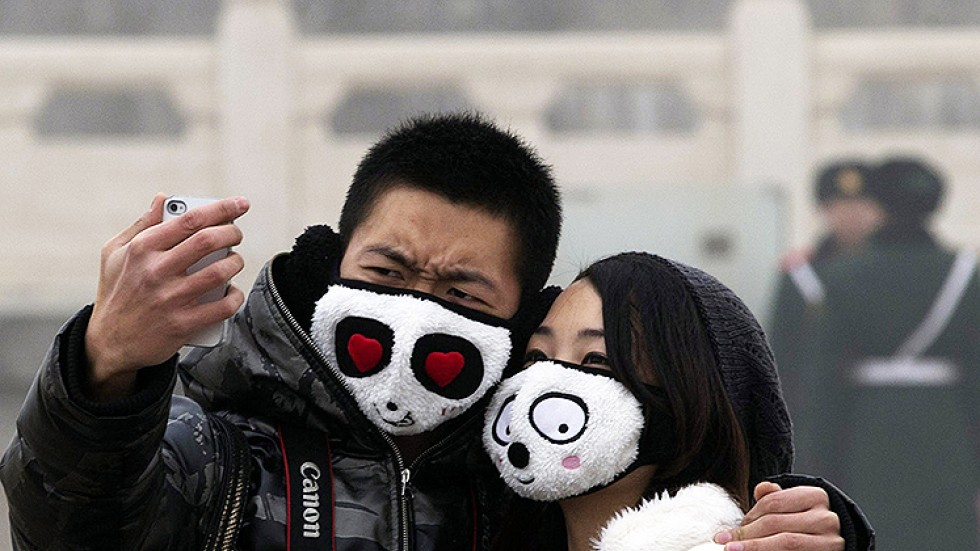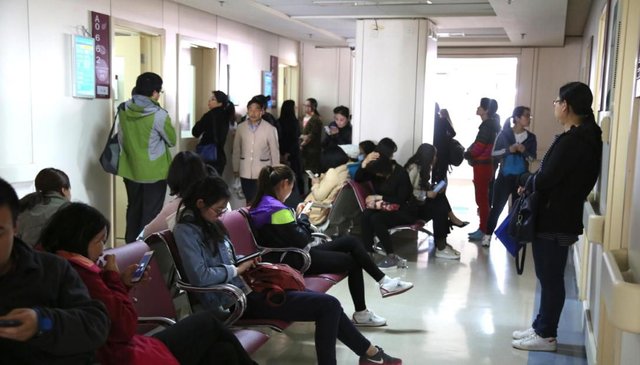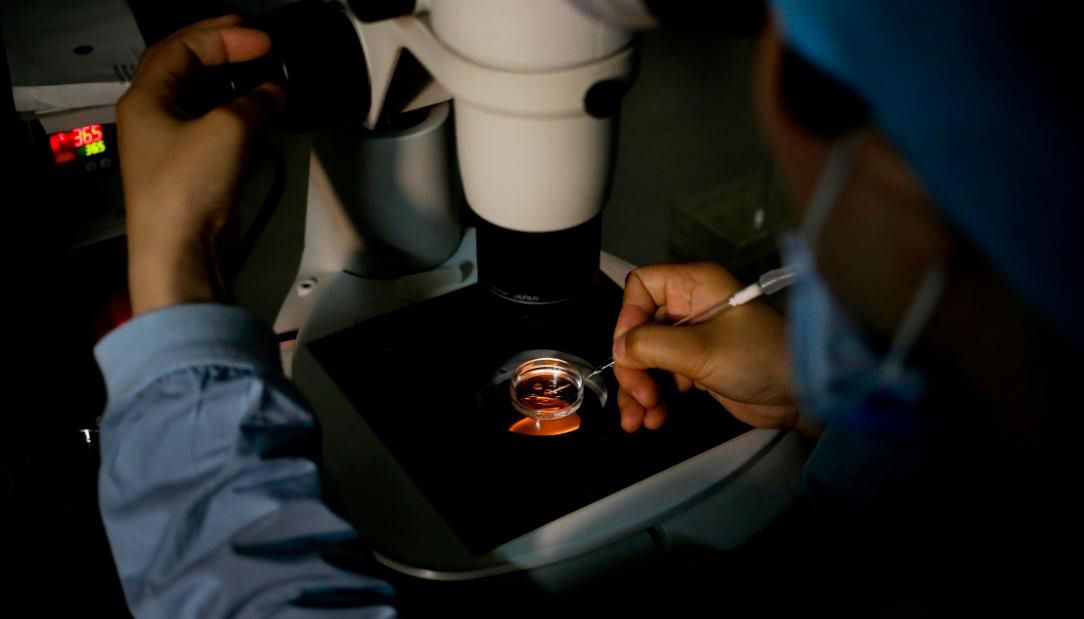Those who crammed infertility in China
Lack of knowledge about infertility, poor living conditions, pollution, and backward technology, are problems in increasing population in China.
Xi Xiaoxin, 35, never thought of himself as difficult to conceive. She married in 2012 and at that time, everything she wanted to do was to travel the world with her husband. After three years of fun, two people consider having children, but this new discovery pregnancy is extremely difficult.
"I recently realized how difficult it was," Xi said. She is one of hundreds of thousands of urban Chinese women struggling for infertility. Like many major cities in the world, the situation of Chinese women delaying motherhood is increasingly popular because of costly living, long working hours, unfriendly maternity and care costs. high children. Some experts believe that environmental factors such as pollution are also a cause of infertility, especially for men.

But the story of infertility does not only affect the individual, but the whole nation. China's birth rate in 2017 is estimated at 1.6 children per woman, equivalent to Canada but lower than the United States and Britain. This rate is lower than the 2.1 standard needed to keep the population stable, according to The World FactBook, which provides information on the agency's history, people, government, and world economy. American newspaper (CIA).
Chinese authorities want to raise the birth rate, but the country's population pyramid is upside down, with the number of people in working age declining compared to the working age population. The Chinese government is determined to reverse this situation by dramatically altering its traditionally low-birth-weight population policy. In 2015, China's abolition of the one-child policy has been in existence for decades and this year, the Family Planning Commission, which is responsible for implementing the policy, has been dissolved.
The decision allowed each family to have two children with increased demand for fertility treatment in older women. Xi and her husband did not think about being parents when they were young.
"Until several years now, when I see my aging parents, I worry that in the future, they will be very sad and lonely because they do not have grandchildren to hold," Xi said.

Struggle in silence
Phoebe Pan runs a group to help women infertility treatment on WeChat, China's largest social network.
"I know a lot of Chinese women are stunned by the so-called infertility and related issues," Pan said. She often shares her experiences in treating polycystic ovary syndrome. This is a hormonal problem that can lead to infertility in women. According to Pan, age is the main cause of this problem.
The stigma of Chinese society is also a factor. Many women confide in him that it is a shame to think of discussing infertility with family and friends. This embarrassment causes a lack of awareness of the condition of young Chinese women.

Xi has tried countless infertility treatments for the past three years, from taking a binge medication for three months, injecting ovulation for three months, and endometrial surgery. This year, she decided to try in vitro fertilization (IVF) in a state hospital. The treatment cost is $ 4,700, equivalent to 4 months' salary in big cities like Beijing, Shanghai and Guangzhou. This type of treatment is not covered by state insurance.
She found the treatment process in public hospitals very uncomfortable. Xi and her husband have to get up early, go to the hospital weekly and spend 4 hours there, most of them take time just to line up.
"The actual visit time is only 5 minutes," Xi said, worried about the cost of fertilization.
Live
Infertility is the subject of a new reality show called "UFO Infertility," which assumes in the future, aliens travel to Earth through UFOs to find out. Why do humans stand in the brink of extinction?
The program began streaming in China earlier this year, led by Dr. Wei Siangyu. Dr. Wei has done a similar show called "Baby's Super Baby Show" in Singapore. In the first episode, Wei's group visits a couple in Shanghai, giving them advice on how to conceive. Tips include diet changes, Tai Chi exercises, rearranged feng shui bedroom and noise isolation. The hosts frowned when they opened the refrigerator in the house and spotted some hot, spicy food. The first two volumes attracted 46 million views online, Wei's company said.
Demands for IVF surge today highlight the dream that many couples have been banned for more than 30 years. By 2016, only 451 hospitals in China are authorized by the government to implement IVF, equivalent to 3.3 units for every 10 million Chinese people, according to a report by the Qianzhan Industrial Research Institute. The report estimates that about 800,000 women and men do not have access to quality assurance treatment.
In addition, the success rate at Chinese hospitals is not as high as abroad due to outdated technology. With a fertility rate of only 30 to 40 percent, China is ranked behind countries such as the US, Thailand and Malaysia with a conception rate of 60-65 percent.
This has led many Chinese to choose to go abroad for infertility treatment, which the United States and Thailand are the top choices. Dr. Hal Danzer, an obstetric and gynecologic specialist in Los Angeles, has a majority of Chinese clients. He says having a late baby is not the only factor.
"I see many Chinese entrepreneurs working 12 hours a day, six days a week, a non-scientific diet, being overweight, being addicted to tobacco, drinking too much alcohol, weak yeast," says Danzer. to speak.
Traditional and modern treatment
Fang, a public hospital doctor in Zhejiang Province, who declined to disclose full name, operating one of the many online stores of reproductive-assisted reproduction products on Taobao, the largest online retailer Central National. Each month, Fang sells tens of thousands of home-made herbal remedies, and demand for this product has grown sharply over the years, surpassing his expectations.
Although Fang admits to taking the magic foot, he says it improves the overall health of the client, and makes it easier to get pregnant. In traditional Chinese medicine, feet are considered to be extremely important for maintaining health.
In addition to traditional medicine, infertility treatment also addresses advanced technology such as ovulation monitoring applications. One leading application in China is the Fengkuangzaoren, which has a pink sperm icon on the watch face, providing the user with a way to monitor body temperature, ovulation, and menstruation. To advise on the most fertile days. The product development company said its core feature is an algorithmic tool that calculates total cost and success rates for IVF implementation, as well as referrals to in-and-out hospitals. country.
Congratulations @honghainguyen! You have completed some achievement on Steemit and have been rewarded with new badge(s) :
Click on any badge to view your own Board of Honor on SteemitBoard.
To support your work, I also upvoted your post!
For more information about SteemitBoard, click here
If you no longer want to receive notifications, reply to this comment with the word
STOP